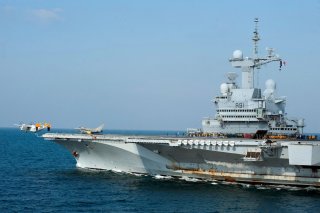How Ukraine Has Reconfigured the EU’s Indo-Pacific Ambitions
The European Union has become an integral part of the emerging Indo-Pacific security nexus.
In late March 2022, the launch of the Strategic Compass is another attempt toward the EU’s integrated approach to global security strategy and becoming an assertive and “decisive” security provider. It is projected as a tool to bolster the bloc’s strategic autonomy through partnerships with NATO (supplementing joint declarations in Warsaw, 2016, and Brussels, 2018); the United Nations (a strategic partner involved in several common defense and security missions); and regional organizations like the OSCE, African Union (AU), and ASEAN, as well as strengthened bilateral collaboration with like-minded states like the United States, Norway, Canada, the United Kingdom, and Japan.
However, the Strategic Compass’ significance lies in allowing the EU to initiate defense and security actions without NATO’s help. Though it does include the provision of a 5,000-strong troop deployment, it is not a precursor to creating a European army or even equivalent to a defense strategy. Even before the release of the EU’s Compass, there were speculations about its overlapping areas of interest with NATO’s upcoming Strategic Concept, and whether two such mechanisms were indeed needed. So far, indications suggest that collective territorial defense is still primarily a NATO domain. NATO secretary-general Jens Stoltenberg had in the recent past stated that the “EU cannot defend Europe.”
Today, the world recognizes that the notion of Cold-War era alliances with an inward-looking collective security approach, creating silos, has become obsolete. Nowhere is it more apparent than in the Indo-Pacific where even the most definitive rivals (e.g., India-China; Japan-South Korea; Japan-China) are attempting to balance increasingly complex ties through minilateral and multilateral partnerships and cooperative security mechanisms. Yet even these states remain reluctant to fully engage in bloc-like formations to avoid the conditional, highly confrontational, and misplaced concept of a threat to one is a threat to all. In light of this, the EU’s global integrated approach to security appears rounded, at least in spirit. However, normative mechanisms need to consider that during major global wars or war-like crises, all partners are unlikely to agree fully to a common response, which is always guided by respective national interests. Thus, a strong cooperative framework must allow room to maneuver the varied security interests in the long term, and the EU is an integral part of the emerging Indo-Pacific security nexus.
Dr. Jagannath Panda is the Head of the Stockholm Centre for South Asian and Indo-Pacific Affairs (SCSA-IPA) at the Institute for Security and Development Policy (ISDP), Sweden. Dr. Panda is also the Director for Europe-Asia Research Cooperation at the Yokosuka Council of Asia-Pacific Studies (YCAPS); a Senior Fellow at The Hague Centre for Strategic Studies (HCSS), The Netherlands. He is also the Series Editor for Routledge Studies on Think Asia.
Image: Flickr.

